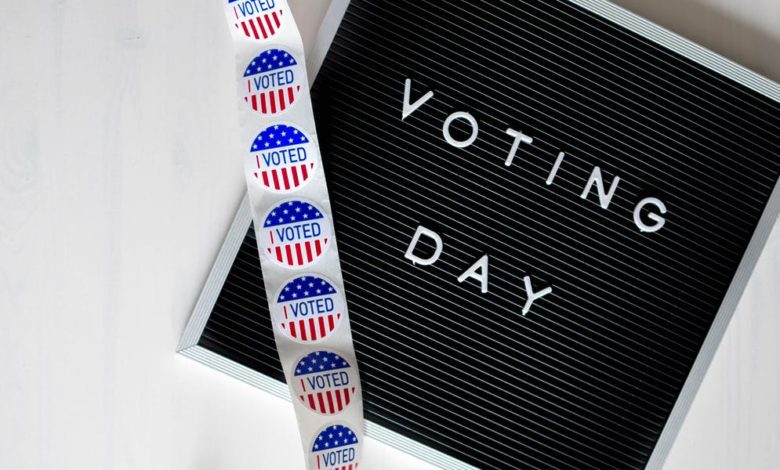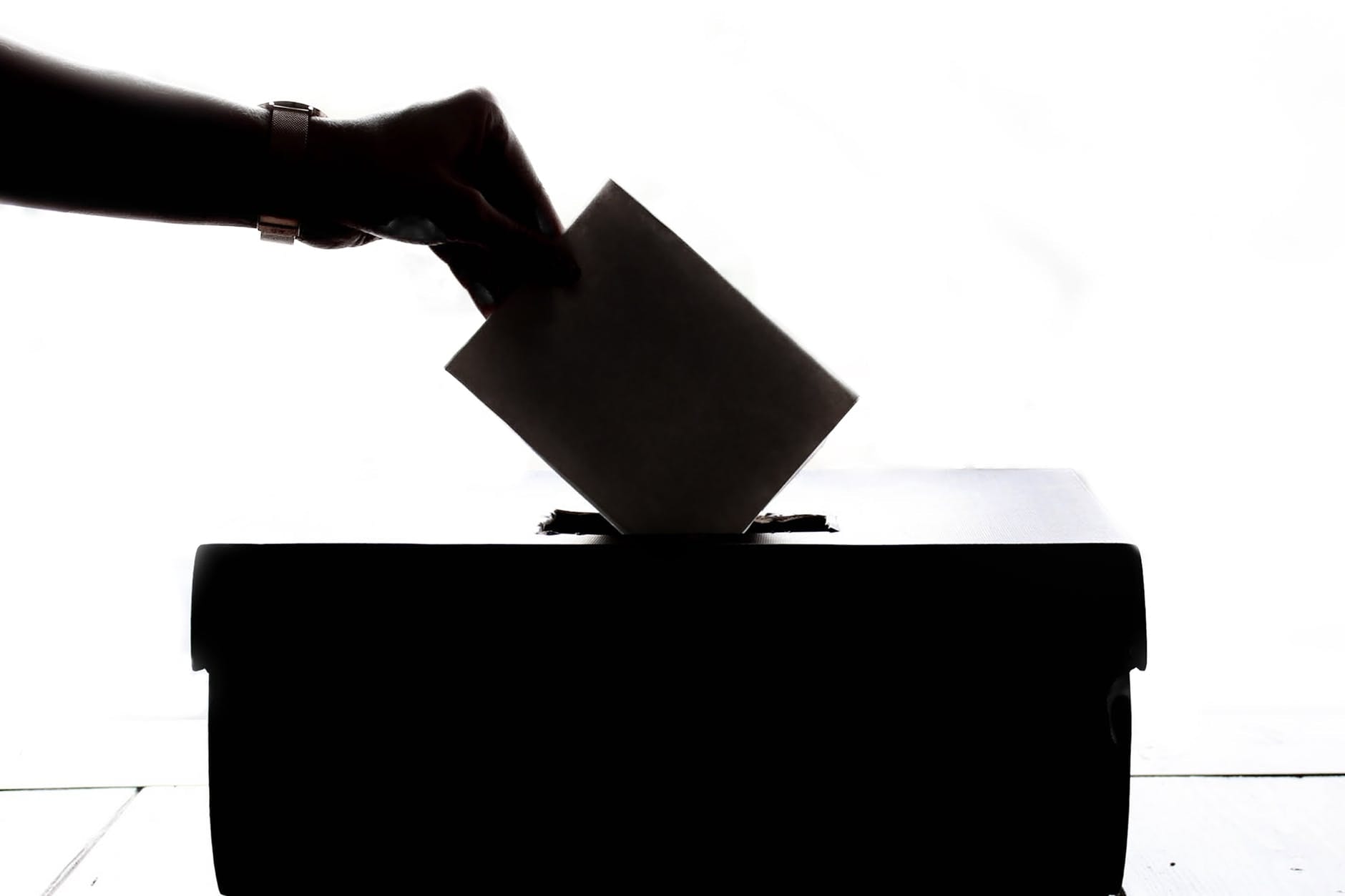Commentary: Don’t Fear Vote by Mail. It’s Pretty Great.

By Ben Chapman
It wasn’t the first time that one of President Trump’s tweets left me scratching my head.
He was ranting about vote by mail, an election administration topic that had, in recent years, been a subject of relatively tame discussion.
“Republicans should fight very hard when it comes to statewide mail-in voting. Democrats are clamoring for it. Tremendous potential for voter fraud, and for whatever reason, doesn’t work out well for Republicans,” Trump tweeted.
He also claimed, emphasis his, “MAIL IN VOTING WILL LEAD TO MASSIVE FRAUD AND ABUSE. IT WILL ALSO LEAD TO THE END OF OUR GREAT REPUBLICAN PARTY.”
This message was reinforced by press conferences, and then by other federal and state Republicans, and in just a few days, the President launched a previously uncontroversial issue into the sphere of punditry and partisanship.
“Vote by mail (VBM),” “Mail-in voting,” or “Vote at home,” all refer to a tried and true system of absentee voting that America has been using since the Civil War.
At that time, it was Abraham Lincoln and what was then the Republican Party advocating for the system to help on-duty Union soldiers vote. To counter Lincoln, pro-slavery southern legislators claimed that it would give Lincoln’s party an advantage and that there would be widespread fraud.
Though the party roles have since flipped, the assertions against VBM clearly haven’t.
However, in the face of criticism, VBM has consistently proven to be a reliable, secure voting method. The tired arguments by Donald Trump simply aren’t true.
Unfortunately, Trump’s lies are being repeated not just by his followers in the federal government, but also by some in our state government like Representative Dan Caulkins of Decatur.
As Caulkins claimed in a Facebook post about the recent expansion of VBM in Illinois, “It’s clear – majority party lawmakers are using the coronavirus pandemic to enact new election laws that tilt elections in their favor.”
Luckily, the notion that VBM is a Democrat plot to win more elections is easily dispelled. To begin, it’s not only Democrats advocating for VBM. The issue is profoundly bipartisan.
Republican-run states and conservative officials across the country are active proponents of the system. For example, Nevada’s GOP is running ads to encourage voters to mail in their ballots, and the purple and red states of Georgia, Indiana, and Pennsylvania are each ramping up their VBM programs for the 2020 general election.
Prominent Utah Republican Senator Mitt Romney spoke up to debunk President Trump’s claims, saying, “In my state, I’ll bet 90% of us vote by mail. It works very very well and it’s a very Republican state.”
There is also scientific evidence to show that VBM is fair. A new study published on May 6th found that VBM has “no discernible effect on party vote shares or the partisan share of the electorate.”
So, if VBM is a liberal plot to win more elections, it’s not a very good one.
As for the accusation that VBM causes voter fraud, it’s equally unfounded.
President Trump claimed VBM creates situations where “you get thousands and thousands of people sitting in somebody’s living room, signing ballots all over the place.”
This argument is, in the most honest terms, completely bonkers. And once again, the statement and the sentiment is easily debunked by conservative voices.
The Heritage Institute, a well-known conservative think tank, maintains a database of voter fraud cases. Over the past 20 years, they report 1,300 cases of voter fraud. A paltry 204 of those cases involved absentee voting.
Over the same time period, 250 million votes were cast by mail. As a percentage, that’s roughly 0.00008%.
The evidence simply doesn’t support the fear mongering that Trump and some Republicans are repeating.
Transitioning to VBM also brings many benefits that give VBM systems an advantage over conventional, in-person voting.
One reason VBM is so beloved by pro-democracy advocates is that it boosts voter turnout across the board by about 2%. For the U.S., a country plagued by embarrassingly low voter turnout compared to other developed countries, this boost is one more step to involving more people in our decision-making process and making our representative government just a little more representative.
This voter turnout boost is especially critical for voters in rural areas, the elderly, and those who have difficulty waiting in long lines due to their health or ability status. VBM also works much better for voters with full time jobs who appreciate the ability to fill out their ballot from the kitchen table.
As a benefit that appeals to small-government conservative audiences, VBM can save money. After transitioning to a mainly VBM system, Colorado’s expenses per voter went from nearly $16 in 2008 to $9.56 in 2014.
Granted, there is a transition period between the current system to an almost fully VBM system, but the savings of nearly 40% means any investment in making the change will quickly pay off.
In recent months, attention around VBM has skyrocketed — and for good reason.
Officials saw the danger of a conventional election in Wisconsin when at least 67 people contracted the coronavirus after taking part in the state’s primary.
Sending voters to polling places involves hefty numbers of in-person volunteers, staff, and of course, voters. This creates conditions ripe for the transmission of a virus and it erects a barrier to voting that disproportionately disenfranchises immunosuppressed populations.
States with expanded VBM like Washington and Wyoming took no such risks, and collided with no such obstacles.
As Illinoisans, we can learn from what they did right and we can avoid what Wisconsin did wrong. But we shouldn’t stop at the marginal expansion of VBM that the Illinois General Assembly has approved, we should go further to a permanent, greatly expanded universal VBM system.
Making this change is an investment, but it will pay off quickly, and the benefits of safe, convenient, engaging elections will reap rewards for us in years to come.
We should adopt expanded vote by mail.


